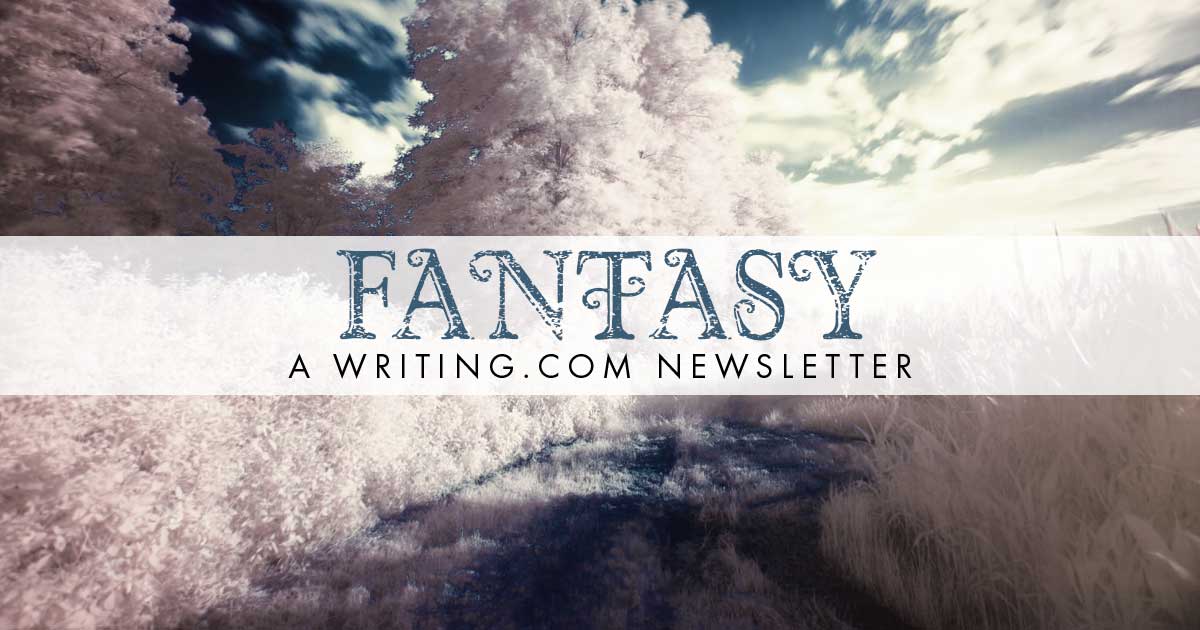This week: Frost Giants and Other Winter Monsters Edited by: Prosperous Snow celebrating  
More Newsletters By This Editor 
![Table of Contents [#401437]
Table of Contents](https://www.Writing.Com/main/trans.gif) ![Table of Contents [#401437]
Table of Contents Table of Contents](/main/images/action/display/ver/1709303267/item_id/401437.png)
1. About this Newsletter
2. A Word from our Sponsor
3. Letter from the Editor
4. Editor's Picks
5. A Word from Writing.Com
6. Ask & Answer
7. Removal instructions
![About This Newsletter [#401439]
About This Newsletter](https://www.Writing.Com/main/trans.gif) ![About This Newsletter [#401439]
About This Newsletter About This Newsletter](https://www.writing.com/main/images/action/display/ver/1709303676/item_id/401439.png)
| It is still autumn, but winter has arrived in all its beauty and misery. Here in the western United States there will be an El Niño winter. Which, normally, means colder than normal. However, with climate change it could be much worse. This got me to thinking about what type of mythological creatures would be present in the snow and the cold. |
![Letter from the editor [#401442]
Letter from the editor](https://www.Writing.Com/main/trans.gif) ![Letter from the editor [#401442]
Letter from the editor Letter from the editor](https://www.writing.com/main/images/action/display/ver/1709303784/item_id/401442.png)
There are numerous mythological creatures that like winter weather. Many of these creatures are usually considered monsters because they are evil. However, that does not apply to all the mythological creatures. Some of them are good, which suggests that they are helpful. Other creatures of myth can be both good and evil depending on the circumstances.
Do frost giants and yeti
welcome winter weather?
Frost giants, also known as Jötunn, are from Norse mythology. If they are male, they are called risi, þurs, or trolls. If they are female, they are referred to as gýgr or tröllkona. These creatures can dwell any place from their own land of Jötunheimr to any other place in the known universe.
Yeti are classed as cryptids rather than myths. They normally dwell in the ice and snow of the Himalayan Mountains. They are about the size of a Sasquatch (a cryptid of the western United States) with white fur or hair. I suspect this helps them hide in the snow.
Beware the wolves of winter!
Wolves appear in a great many winter myths. Amaroq, in Inuit mythology, is a giant wolf that can be both dangerous and helpful. He is dangerous because he stalks and devours those who hunt at night. He is helpful because he keeps reindeer herds healthy by eating the weak and the sick. He is also known to befriend lost and lonely children.
Wolves are not the only creatures that can be good, evil, or both. There are creatures similar to Saint Nicholas and Krampus in almost all winter mythologies. Most of these myths can be traced back to pre-Christian origins.
|
![Editor's Picks [#401445]
Editor's Picks](https://www.Writing.Com/main/trans.gif) ![Editor's Picks [#401445]
Editor's Picks Editor's Picks](https://www.writing.com/main/images/action/display/ver/1709303830/item_id/401445.png)
| |  | Invalid Item 
This item number is not valid.
#2306898 by Not Available. |
| |  | Invalid Item 
This item number is not valid.
#2307676 by Not Available. |
| |  | Invalid Item 
This item number is not valid.
#2307924 by Not Available. |
| |  | Invalid Item 
This item number is not valid.
#2307956 by Not Available. |
|
![Word From Writing.Com [#401447]
Word from Writing.Com](https://www.Writing.Com/main/trans.gif) ![Word From Writing.Com [#401447]
Word from Writing.Com Word from Writing.Com](https://www.writing.com/main/images/action/display/ver/1709303874/item_id/401447.png)
Have an opinion on what you've read here today? Then send the Editor feedback! Find an item that you think would be perfect for showcasing here? Submit it for consideration in the newsletter!
https://www.Writing.Com/go/nl_form
![Ask & Answer [#401448]
Ask & Answer](https://www.Writing.Com/main/trans.gif) ![Ask & Answer [#401448]
Ask & Answer Ask & Answer](https://www.writing.com/main/images/action/display/ver/1709303902/item_id/401448.png)
Imogen Elliott  writes: The "headless horseman" Ichabod Crane is undoubtedly one of the most captivating folklore stories about Halloween, and it has always been one of my favorites. writes: The "headless horseman" Ichabod Crane is undoubtedly one of the most captivating folklore stories about Halloween, and it has always been one of my favorites.
Nobody’s Home  writes: The October facts, folklore, and myths listed in this newsletter seem to be focused on the Northern Hemisphere, especially North America and Western Europe. Since WDC has quite a few members from other locations and other ethnicities, it might be nice to include them in newsletters like this one–especially since those of us in N. America and Europe are likely very familiar with most of the myths associated with Halloween/Samhain and are aware that the days are growing longer, the weather grows colder, the leaves change color, etc. writes: The October facts, folklore, and myths listed in this newsletter seem to be focused on the Northern Hemisphere, especially North America and Western Europe. Since WDC has quite a few members from other locations and other ethnicities, it might be nice to include them in newsletters like this one–especially since those of us in N. America and Europe are likely very familiar with most of the myths associated with Halloween/Samhain and are aware that the days are growing longer, the weather grows colder, the leaves change color, etc.
Perhaps next year this newsletter could explore what non-white cultures do during this time of year, and whether (and how) Halloween is celebrated in the Southern Hemisphere. Thanks for your consideration!
|
![Unsubscribe [#401452]
Removal Instructions](https://www.Writing.Com/main/trans.gif) ![Unsubscribe [#401452]
Removal Instructions Removal Instructions](https://www.writing.com/main/images/action/display/ver/1709303960/item_id/401452.png)
To stop receiving this newsletter, click here for your newsletter subscription list. Simply uncheck the box next to any newsletter(s) you wish to cancel and then click to "Submit Changes". You can edit your subscriptions at any time.
|
